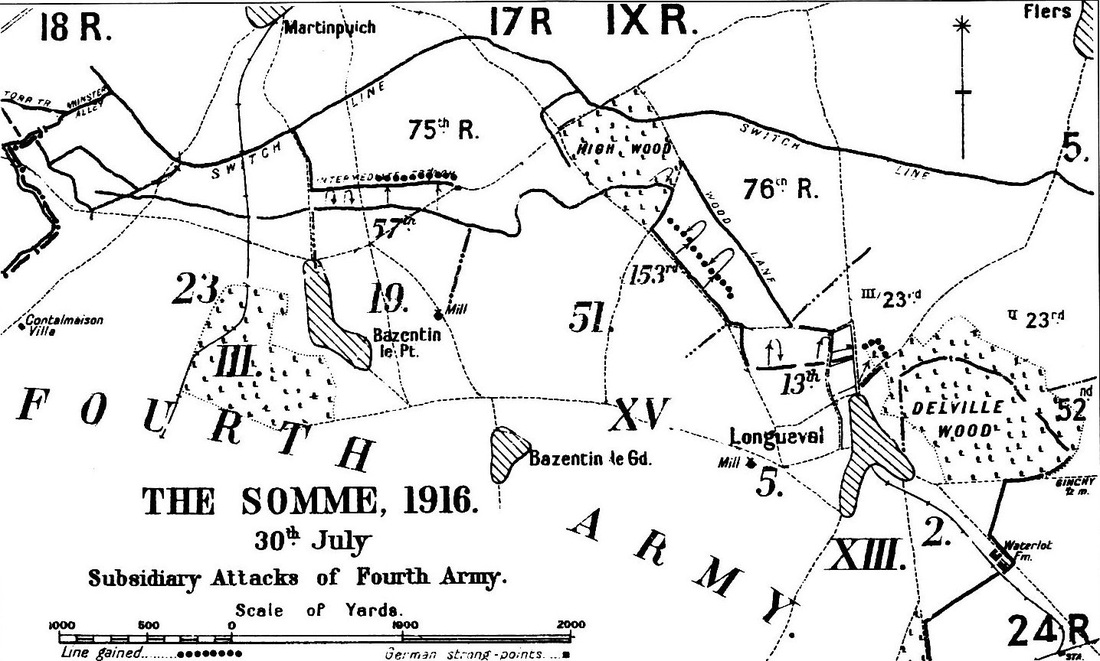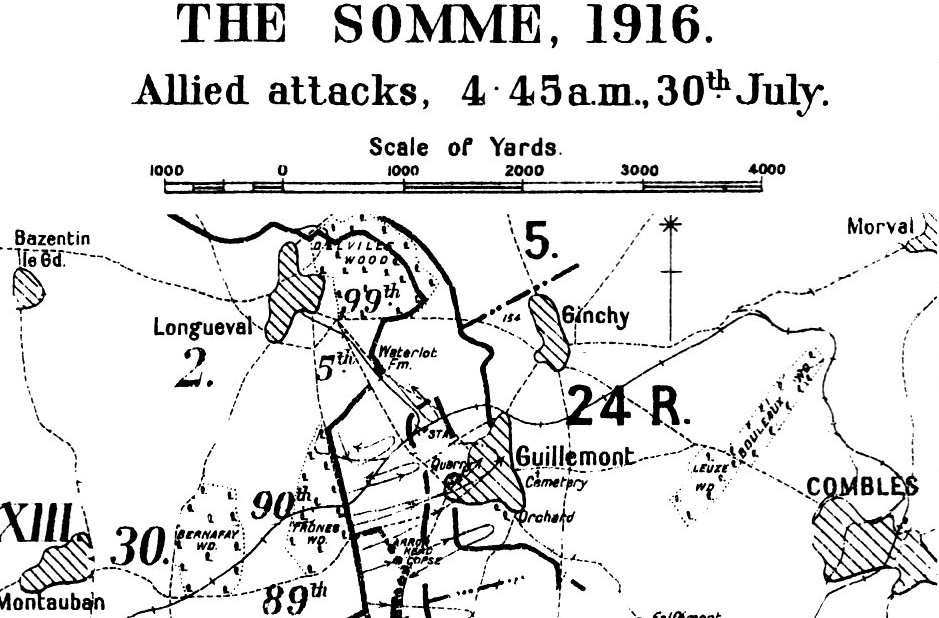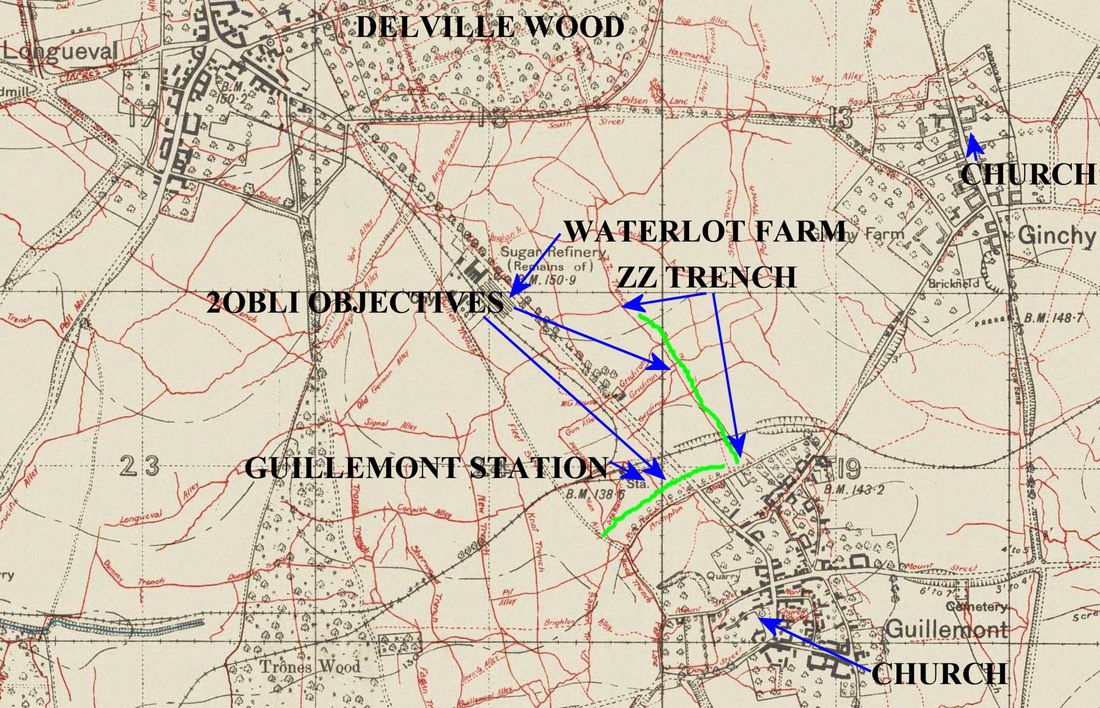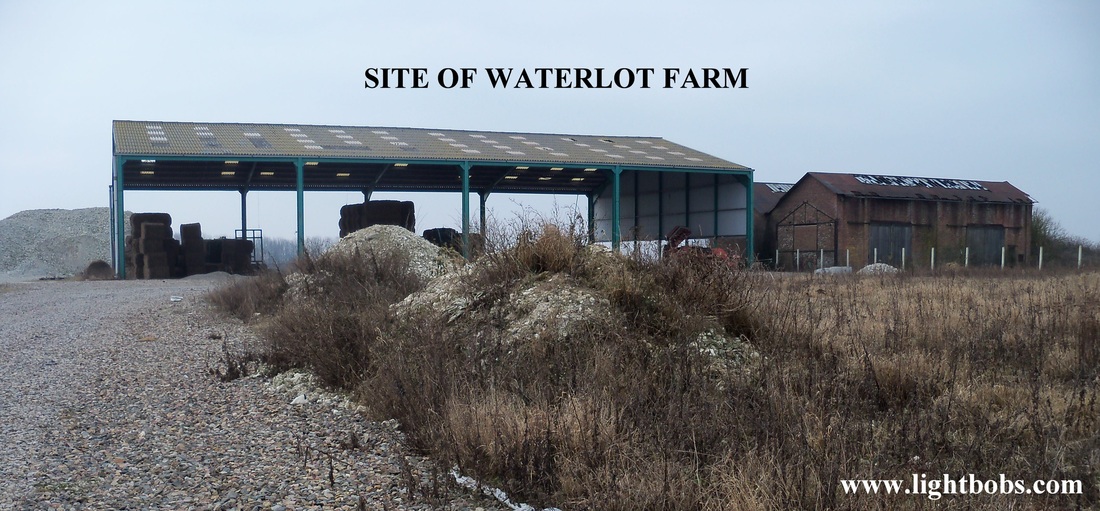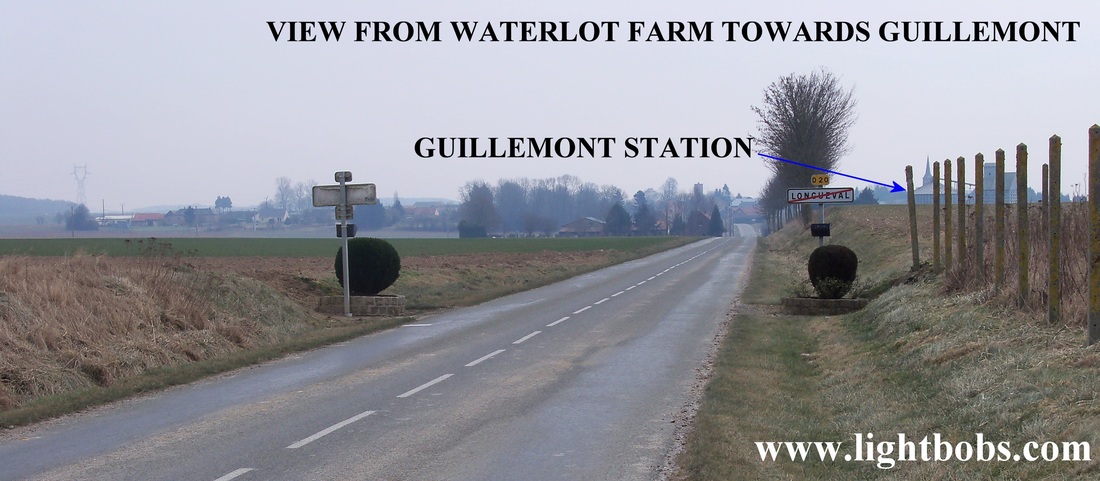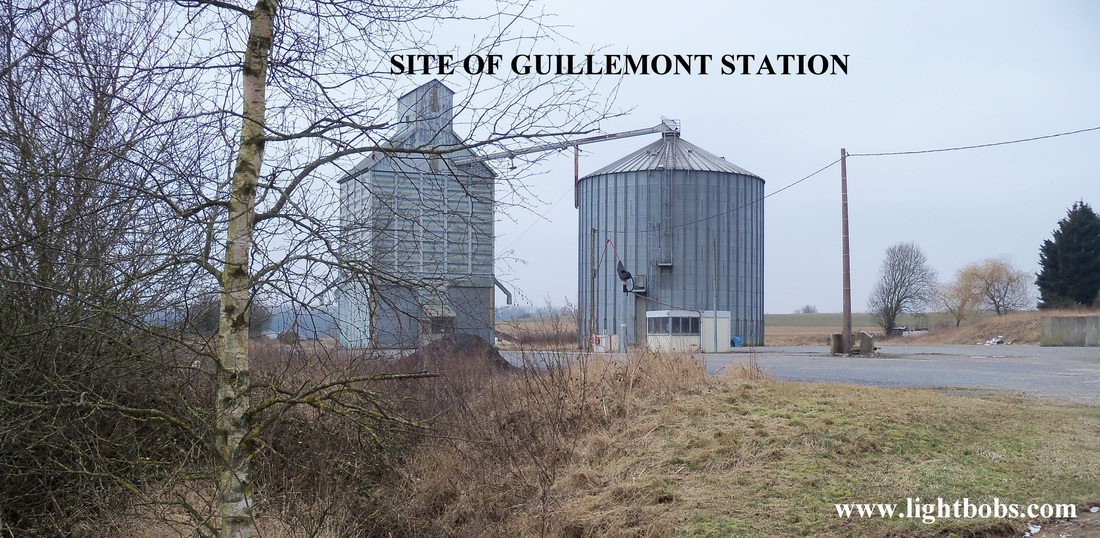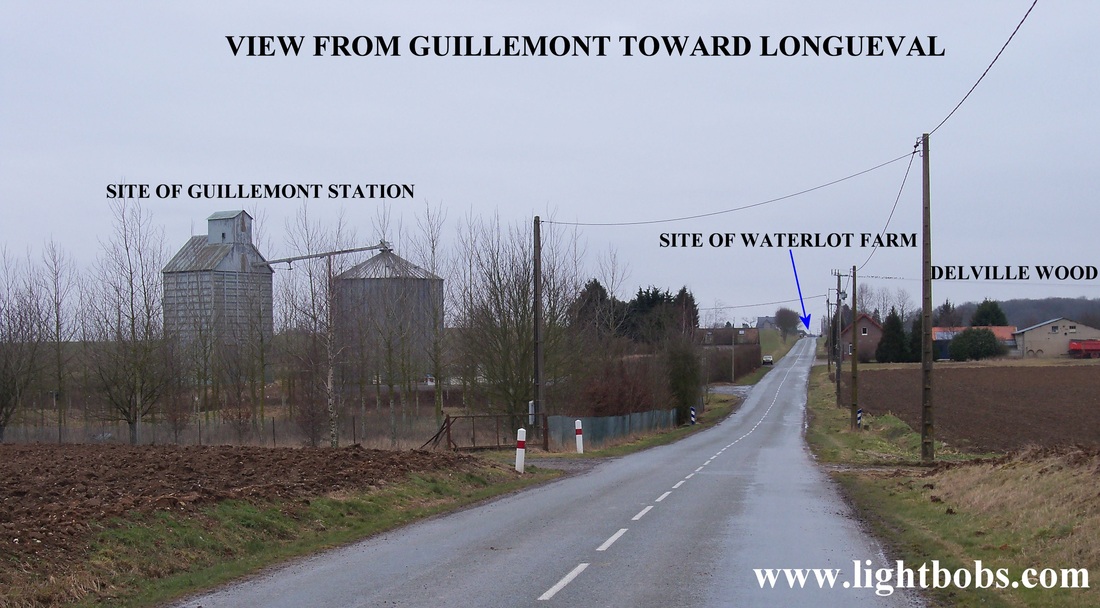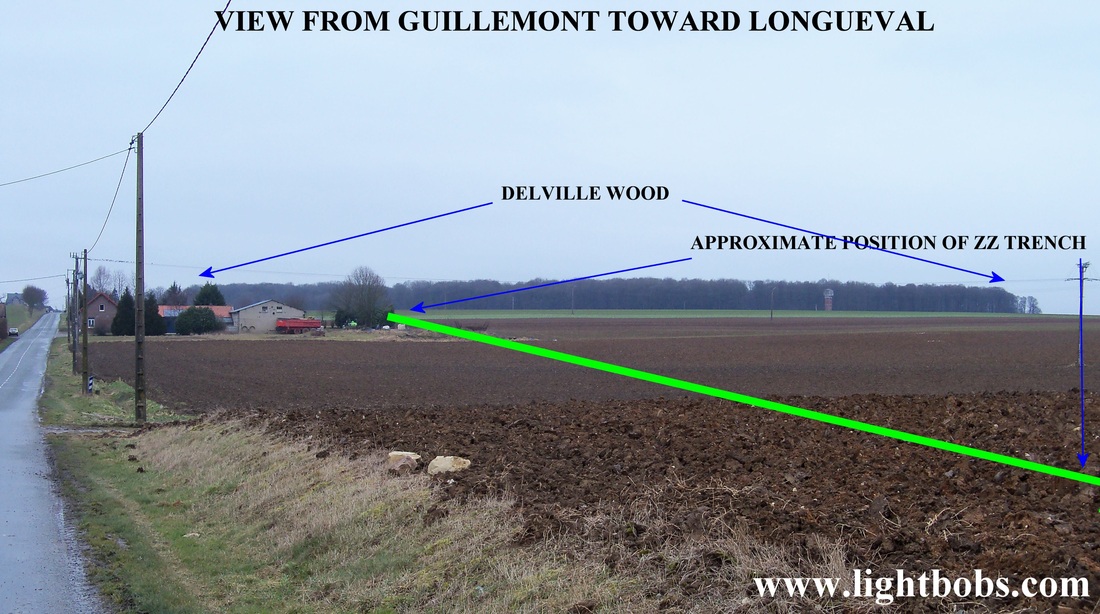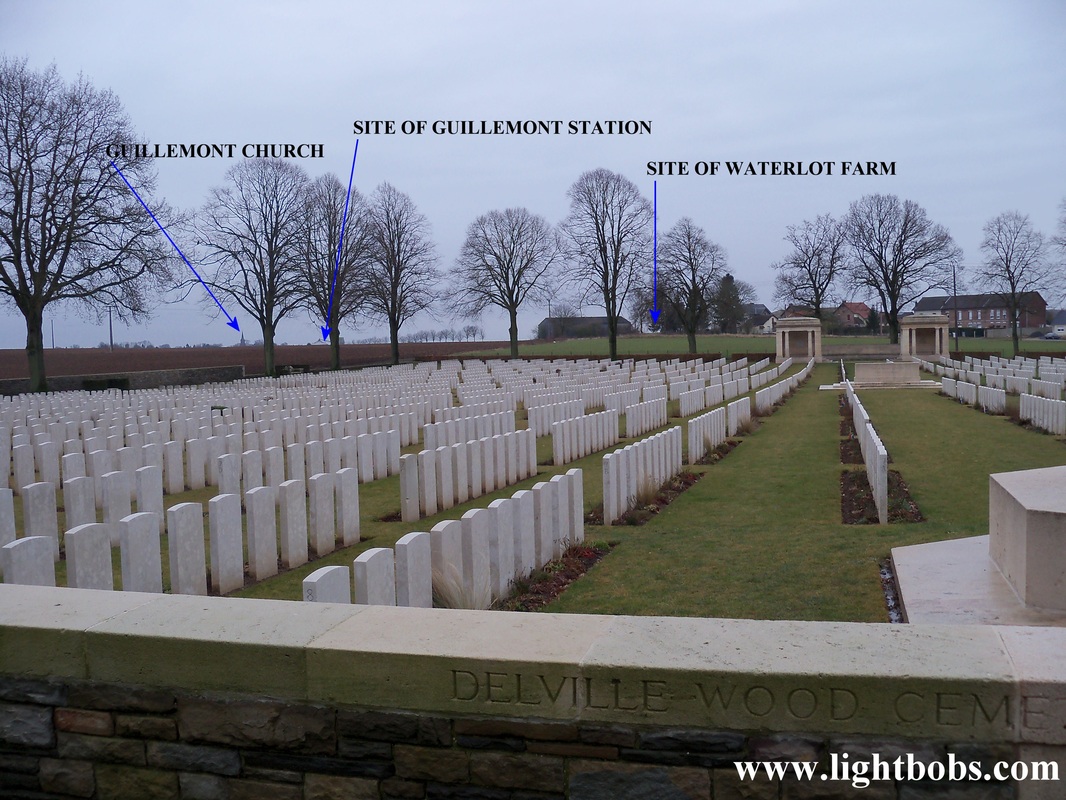- HOME
- SOLDIER RESEARCH
- WOLVERTONS AMATEUR MILITARY TRADITION
- BUCKINGHAMSHIRE RIFLE VOLUNTEERS 1859-1908
- BUCKINGHAMSHIRE BATTALION 1908-1947
- The Bucks Battalion A Brief History
- REGIMENTAL MARCH
-
1ST BUCKS 1914-1919
>
- 1914-15 1/1ST BUCKS MOBILISATION
- 1915 1/1ST BUCKS PLOEGSTEERT
- 1915-16 1/1st BUCKS HEBUTERNE
- 1916 1/1ST BUCKS SOMME JULY 1916
- 1916 1/1st BUCKS POZIERES WAR DIARY 17-25 JULY
- 1916 1/1ST BUCKS SOMME AUGUST 1916
- 1916 1/1ST BUCKS LE SARS TO CAPPY
- 1917 1/1ST BUCKS THE GERMAN RETIREMENT
- 1917 1/1st BUCKS TOMBOIS FARM
- 1917 1/1ST BUCKS THE HINDENBURG LINE
- 1917 1/1ST BUCKS 3RD BATTLE OF YPRES
- 1917 1/1st BUCKS 3RD YPRES 16th AUGUST
- 1917 1/1st BUCKS 3RD YPRES WAR DIARY 15-17 JULY
- 1917 1/1ST BUCKS 3RD BATTLE OF YPRES - VIMY
- 1917-18 1/1ST BUCKS ITALY
-
2ND BUCKS 1914-1918
>
- 1914-1916 2ND BUCKS FORMATION & TRAINING
- 1916 2/1st BUCKS ARRIVAL IN FRANCE
- 1916 2/1st BUCKS FROMELLES
- 1916 2/1st BUCKS REORGANISATION
- 1916-1917 2/1st BUCKS THE SOMME
- 1917 2/1st BUCKS THE GERMAN RETIREMENT
- 1917 2/1st BUCKS ST QUENTIN APRIL TO AUGUST 1917
- 1917 2/1st BUCKS 3RD YPRES
- 1917 2/1st BUCKS ARRAS & CAMBRAI
- 1918 2/1st BUCKS ST QUENTIN TO DISBANDMENT
-
1ST BUCKS 1939-1945
>
- 1939-1940 1BUCKS MOBILISATION & NEWBURY
- 1940 1BUCKS FRANCE & BELGIUM
- 1940 1BUCKS HAZEBROUCK
- HAZEBROUCK BATTLEFIELD VISIT
- 1940-1942 1BUCKS
- 1943-1944 1BUCKS PREPARING FOR D DAY
- COMPOSITION & ROLE OF BEACH GROUP
- BROAD OUTLINE OF OPERATION OVERLORD
- 1944 1ST BUCKS NORMANDY D DAY
- 1944 1BUCKS 1944 NORMANDY TO BRUSSELS (LOC)
- Sword Beach Gallery
- 1945 1BUCKS 1945 FEBRUARY-JUNE T FORCE 1st (CDN) ARMY
- 1945 1BUCKS 1945 FEBRUARY-JUNE T FORCE 2ND BRITISH ARMY
- 1945 1BUCKS JUNE 1945 TO AUGUST 1946
- BUCKS BATTALION BADGES
- BUCKS BATTALION SHOULDER TITLES 1908-1946
- 1939-1945 BUCKS BATTALION DRESS >
- ROYAL BUCKS KINGS OWN MILITIA
- BUCKINGHAMSHIRE'S LINE REGIMENTS
- ROYAL GREEN JACKETS
- OXFORDSHIRE & BUCKINGHAMSHIRE LIGHT INFANTRY 1741-1965
- OXF & BUCKS LI INSIGNIA >
- REGIMENTAL CUSTOMS & TRADITIONS >
- REGIMENTAL COLLECT AND PRAYER
- OXF & BUCKS LI REGIMENTAL MARCHES
- REGIMENTAL DRILL >
-
REGIMENTAL DRESS
>
- REGIMENTAL UNIFORM 1741-1896
- REGIMENTAL UNIFORM 1741-1914
- 1894 REGIMENTAL DRESS
- 1897 OFFICERS DRESS REGULATIONS
- 1900 DRESS REGULATIONS
- 1931 REGIMENTAL DRESS
- 1939-1945 REGIMENTAL DRESS
- 1950 OFFICERS DRESS REGULATIONS
- 1960 OFFICERS DRESS REGULATIONS (TA)
- 1960 REGIMENTAL MESS DRESS
- 1963 REGIMENTAL DRESS
- 1958-1969 REGIMENTAL DRESS
- HEADDRESS >
- REGIMENTAL CREST
- BATTLE HONOURS
- REGIMENTAL COLOURS >
- BRIEF HISTORY
- REGIMENTAL CHAPEL, OXFORD >
-
THE GREAT WAR 1914-1918
>
- REGIMENTAL BATTLE HONOURS 1914-1919
- OXF & BUCKS LI 1914-1919 SUMMARY INTRODUCTION
- 1 OXF & BUCKS LI 1914-1919 SUMMARY
- 2 OXF & BUCKS LI 1914-1919 SUMMARY
- 1/4 OXF & BUCKS LI 1914-1918 SUMMARY
- 2/4 OXF & BUCKS LI 1914-1918 SUMMARY
- 1/1 BUCKS BATTALION 1914-1918 SUMMARY
- 2/1 BUCKS BATTALION 1914-1918 SUMMARY
- 5 (SERVICE) OXF & BUCKS LI 1914-1918 SUMMARY
- 6 (SERVICE) OXF & BUCKS LI 1914-1918 SUMMARY
- 7 (SERVICE) OXF & BUCKS LI 1914-1918 SUMMARY
- 8 (SERVICE) OXF & BUCKS LI 1914-1918 SUMMARY
- 1st GREEN JACKETS (43rd & 52nd) 1958-1965
- 1ST GREEN JACKETS (43RD & 52ND) 1958-1965
- 1959 1ST GREEN JACKETS (43RD & 52ND)
- 1959 REGIMENTAL MARCH IN OXFORD
- 1959 DEMONSTRATION BATTALION
- 1960 1ST GREEN JACKETS (43RD & 52ND)
- 1961 1ST GREEN JACKETS (43RD & 52ND)
- 1961 THE LONGEST DAY
- 1962 1ST GREEN JACKETS (43RD & 52ND)
- 1963 1ST GREEN JACKETS (43RD & 52ND)
- 1963 CONVERSION TO “RIFLE” REGIMENT
- 1964 1ST GREEN JACKETS (43RD & 52ND)
- 1965 1ST GREEN JACKETS (43RD & 52ND)
- 1965 FORMATION OF ROYAL GREEN JACKETS
- REGULAR BATTALIONS 1741-1958
-
1st BATTALION (43rd LIGHT INFANTRY)
>
-
43rd LIGHT INFANTRY 1741-1914
>
- 43rd REGIMENT 1741-1802
- 43rd LIGHT INFANTRY 1803-1805
- 43rd LIGHT INFANTRY 1806-1809
- 43rd LIGHT INFANTRY 1809-1810
- 43rd LIGHT INFANTRY 1810-1812
- 43rd LIGHT INFANTRY 1812-1814
- 43rd LIGHT INFANTRY 1814-1818
- 43rd LIGHT INFANTRY 1818-1854
- 43rd LIGHT INFANTRY 1854-1863
- 43rd LIGHT INFANTRY 1863-1865
- 43rd LIGHT INFANTRY 1865-1897
- 43rd LIGHT INFANTRY 1899-1902
- 43rd LIGHT INFANTRY 1902-1914
-
1 OXF & BUCKS LI 1914-1919
>
-
1 OXF & BUCKS LI 1920-1939
>
- 1 OXF & BUCKS LI - 1919
- 1 OXF & BUCKS LI - 1920
- 1 OXF & BUCKS LI - 1921
- 1 OXF & BUCKS LI - 1922
- 1 OXF & BUCKS LI - 1923
- 1 OXF & BUCKS LI - 1924
- 1 OXF & BUCKS LI - 1925
- 1 OXF & BUCKS LI - 1926
- 1 OXF & BUCKS LI - 1927
- 1 OXF & BUCKS LI - 1928
- 1 OXF & BUCKS LI - 1929
- 1 OXF & BUCKS LI - 1930
- 1 OXF & BUCKS LI - 1931
- 1 OXF & BUCKS LI - 1932
- 1 OXF & BUCKS LI - 1933
- 1 OXF & BUCKS LI - 1934
- 1 OXF & BUCKS LI - 1935
- 1 OXF & BUCKS LI - 1936
- 1 OXF & BUCKS LI - 1937
- 1 OXF & BUCKS LI - 1938
- 1 OXF & BUCKS LI - 1939
- 1 OXF & BUCKS LI 1939-1945 >
-
1 OXF & BUCKS 1946-1958
>
- 1 OXF & BUCKS LI - 1946
- 1 OXF & BUCKS LI - 1947
- 1 OXF & BUCKS LI - 1948
- 1948 FREEDOM PARADES
- 1 OXF & BUCKS LI - 1949
- 1 OXF & BUCKS LI - 1950
- 1 OXF & BUCKS LI - 1951
- 1 OXF & BUCKS LI - 1952
- 1 OXF & BUCKS LI - 1953
- 1 OXF & BUCKS LI - 1954
- 1 OXF & BUCKS LI - 1955
- 1 OXF & BUCKS LI - 1956
- 1 OXF & BUCKS LI - 1957
- 1 OXF & BUCKS LI - 1958
-
43rd LIGHT INFANTRY 1741-1914
>
-
2nd BATTALION (52nd LIGHT INFANTRY)
>
- 52nd LIGHT INFANTRY 1755-1881 >
- 2 OXF LI 1881-1907
- 2 OXF & BUCKS LI 1908-1914
-
2 OXF & BUCKS LI 1914-1919
>
-
2 OXF & BUCKS LI - 1919-1939
>
- 2 OXF & BUCKS LI - 1919
- 2 OXF & BUCKS LI - 1920
- 2 OXF & BUCKS LI - 1921
- 2 OXF & BUCKS LI - 1922
- 2 OXF & BUCKS LI - 1923
- 2 OXF & BUCKS LI - 1924
- 2 OXF & BUCKS LI - 1925
- 2 OXF & BUCKS LI - 1926
- 2 OXF & BUCKS LI - 1927
- 2 OXF & BUCKS LI - 1928
- 2 OXF & BUCKS LI - 1929
- 2 OXF & BUCKS LI - 1930
- 2 OXF & BUCKS LI - 1931
- 2 OXF & BUCKS LI - 1932
- 2 OXF & BUCKS LI - 1933
- 2 OXF & BUCKS LI - 1934
- 2 OXF & BUCKS LI - 1935
- 2 OXF & BUCKS LI - 1936
- 2 OXF & BUCKS LI - 1937
- 2 OXF & BUCKS LI - 1938
- 2 OXF & BUCKS LI - 1939
-
2 OXF & BUCKS LI 1939-1945
>
- 1939-1941
- 1941-1943 AIRBORNE INFANTRY
- 1944 PREPARATION FOR D DAY
- 1944 PEGASUS BRIDGE-COUP DE MAIN
- Pegasus Bridge Gallery
- Horsa Bridge Gallery
- COUP DE MAIN NOMINAL ROLL
- MAJOR HOWARDS ORDERS
- 1944 JUNE 6
- D DAY ORDERS
- 1944 JUNE 7-13 ESCOVILLE & HEROUVILETTE
- Escoville & Herouvillette Gallery
- 1944 JUNE 13-AUGUST 16 HOLDING THE BRIDGEHEAD
- 1944 AUGUST 17-31 "PADDLE" TO THE SEINE
- "Paddle To The Seine" Gallery
- 1944 SEPTEMBER ARNHEM
- OPERATION PEGASUS 1
- 1944/45 ARDENNES
- 1945 RHINE CROSSING
- OPERATION VARSITY - ORDERS
- OPERATION VARSITY BATTLEFIELD VISIT
- 1945 MARCH-JUNE
- 2 OXF & BUCKS LI DRESS 1940-1945 >
- 2 OXF & BUCKS LI 1946-1947 >
-
1st BATTALION (43rd LIGHT INFANTRY)
>
- MILITIA BATTALIONS
- TERRITORIAL BATTALIONS
- WAR RAISED/SERVICE BATTALIONS 1914-18 & 1939-45
-
5th, 6th, 7th & 8th (SERVICE) 1914-1918
>
-
6th & 7th Bns OXF & BUCKS LI 1939-1945
>
- 6th Bn OXF & BUCKS LI 1940-1945 >
-
7th Bn OXF & BUCKS LI 1940-1945
>
- 7th Bn OXF & BUCKS LI JUNE 1940-JULY 1942
- 7th Bn OXF & BUCKS LI JULY 1942 – JUNE 1943
- 7th Bn OXF & BUCKS LI JULY 1943–OCTOBER 1943
- 7th Bn OXF & BUCKS LI OCTOBER 1943–DECEMBER 1943
- 7th Bn OXF & BUCKS LI DECEMBER 1943-JUNE 1944
- 7th Bn OXF & BUCKS LI JANUARY 1944-JUNE 1944
- 7th Bn OXF & BUCKS LI JUNE 1944–JANUARY 1945
-
5th, 6th, 7th & 8th (SERVICE) 1914-1918
>
- "IN MY OWN WORDS"
- CREDITS
THE SOMME SECTOR
JULY 20TH - 30TH 1916
Based on extracts from the Regimental Chronicles of the Oxfordshire & Buckinghamshire Light Infantry Vol 26 1916-1917
July 20th.-The Regiment paraded at 9.20 a.m. and entrained at Pernes Station at 10.50 a.m.; arrived at Saleux, a little south of Amiens, at 4.35 p.m. Detrained, and had a long march (16 miles), not arriving at Corbie until after midnight. The men marched very well, only two falling out.
July 21st.-Got into billets at about 12.30 a.m. Regiment resting all day. Very hot. C.O. and Adjutant reconnoitred country north-west of Bray-sur-Somme. The traffic through Corbie at present is just like that in Piccadilly—hundreds of lorries, etc., passing through all day and most of the night; most difficult to sleep.
July 22nd.-More or less standing by all day, expecting orders to move. Bathing parade before breakfast.
July 23rd.-The Regiment marched at 10.30 a.m. to Happy Valley, and arrived at 4.30 p.m. Enormous number of horses and vehicles here, all standing in the open. Bivouacked,
July 25th.-The C.O. took O.C.'s A and D Companies on reconnaissance to reserve and support trenches. At 8 p.m. the Regiment left bivouac, and moved up to Montauban area (to the south of Montauban), as battalion
in 5th Brigade reserve.
The 5th Brigade relieved a brigade of the 3rd Division.
July 27th.- The Germans had been firing heavy shells all night, and the companies had had a bad time. Fairly quiet day, except for some shelling of the vicinity of Regimental H.Q. Ordered to relieve 2nd H.L.I. tomorrow in frontline trenches about Waterlot Farm.
July 28th.-In the early morning the C.O., Adjutant, Bobby (Grenade Officer), and Horley (Lewis-gun Officer) went round the trenches at Waterlot Farm.
At about 7 p.m. we moved up to the front line, to relieve the H.L.I., going via Bernafay Wood, Trones Wood, up Longueval Alley, to the edge of Delville Wood, and then past Waterlot Farm. It was a horrible walk, the ground being strewn with dead, in all positions and much decomposed. As soon as we arrived there was a scare, and our companies were blocked coming in. The H.L.I, did not get away until long after midnight.
July 29th.-A quiet day and very hot. Very busy all day making preparations and getting out orders for our attack tomorrow morning, orders for which were given verbally to C.O.'s yesterday. We moved our H.Q. in the evening to Divisional H.Q.
July 30th.-Zero was at 4.45 a.m., i.e., daylight, and much too late. The attack by B and C Companies on Guillemont Station failed after repeated attempts, and so the other attack (by A and D, towards Ginchy) failed also. We have 12 officer casualties, and more than 200 men. We naturally had no rest for the remainder of the day, and a disturbed night.
July 3lst.-Got orders about 2 a.m. that the H.L.I, were relieving us, with the exception of D Company, who had to be left behind. We were back in our old position, near Brigade H.Q., about 7 a.m. There was considerable shelling during the night, so we did not have a very good night's sleep, as we had hoped.
ATTACK ON GUILLEMONT.
Lieut.-Colonel Crosse's Diary continued.
On the 29th July the 5th Infantry Brigade issued orders for the attack, of which the following is a summary :--
"Reference Guillemont Map 1/20,000.
Para 1. The 5th Infantry Brigade, in conjunction with troops of the 30th Division, will attack and capture the village of Guillemont, Guillemont Station, and the German trenches east of Waterlot Farm on the morning of the 30th July. The hour of zero will be communicated later.
Para 2. The objectives for the 5th Infantry Brigade will be as follows :--
(a) The enemy's defences between Waterlot Farm and Guillemont (exclusive), including the trench which runs parallel to the Longueval-Guillemont Road through T.19.a. S.24.b, and S.l8.d.
(b) The German trenches running from S.l8.d.5.5, T.19.a.7 1/2, T.19.c.4.9 ½.
When captured, the northern extremity of these trenches will be joined up with our present line in the south-east corner of Delville Wood.
(c) To gain touch with the 30th Division.
After reaching the objectives the railway will be the southern boundary of the Brigade.
Para 3. The attack will be preceded by a bombardment of heavy and field
artillery.
Para 4. The Infantry of the 30th Division will assault their first objective, so as to reach it just after 0.8, at which hour the barrage will lift to the second line.
" The Infantry of the 5th Brigade will reach their objectives at-
(a) Guillemont Station and trench immediately south of it
(b) The portion of German trench situated in S.l8.d at the same time as the Infantry of the 30th Division reach their first objective.
''Strong points will be constructed at the station at about T.19.a.4.2 and at
S.l8.d Central."
Paragraphs 5, 6, and 7 mentioned the work that would be carried out by the artillery and machine-guns, the latter from the S.E. corner of Delville Wood sweeping the ground between Ginchy Village and the German trenches, and the former cutting the wire in front of the German trenches, and then barraging by lifts in accordance with times marked on an attached map.
Para 8. The attack, as detailed above, will be carried out by the 2nd Oxford and Bucks Light Infantry on the right, and the 24th Royal Fusiliers on the
left.
"The right Battalion will be responsible for Guillemont Station and trench immediately south of it, and, in the final objective, for hostile trench from T.l9.c.9 ½ (exclusive) to S.24.b.8.8.
"The attack on Guillemont Station will be timed to commence at 0.8 (i.e., zero + 8 minutes).
"Prior to this time the attacking troops will crawl up as close to our barrage as possible.
"At 0.25 the attack on enemy's trench T.19.c.4.9 ½ to S.24.b.8.8 will be carried out; in this case also the one and a half companies detailed for this objective will approach as close as possible to our barrage.
"At 0.8 the left Battalion will attack and consolidate enemy's line from S.24.b.8.8 to S.18.d.5.5. They will also furnish a company for the purpose of joining up the captured line to the southeast corner of Delville Wood. The order for this latter work to commence will emanate from O.C. 24th Royal Fusiliers, who will decide when the situation admits of the digging being carried on. It is not intended that this trench should be dug continuously, but work will be concentrated on a chain of small posts which can be joined up later."
Para. 9 gave the disposition of units of the Brigade prior to zero hour,
Para. 10 the forming-up places prior to the attack, the Regiment receiving instructions as follows :--
"2nd Oxford and Bucks Light Infantry :--
"One and a half companies for attack of station will be formed up as directed by O.C. Battalion. The attack on the station will be made from the N.W.
"One and a half companies for attacking enemy's line will be formed up as detailed by O.C. Battalion.
"One company, as already detailed, holding our line.
"Battalion H.Q. in present front line."
Para. 11 dealt with communications—telephone and visual, and the following relating to the use of pigeons :--
"Pigeons.—There are 4 birds at Waterlot Farm, and 4 at Bernafay. Quick communication can be obtained at any time by this means. Birds fly to Corbie, and wires are sent back through 2nd Division. Total time taken,
about 30 to 45 minutes to Brigade H.Q.
Para. 12 two Stokes mortar-guns were placed at the disposal of the O.C. 2nd Oxford and Bucks Light Infantry during the advance on Guillemont Station;
Para. 13 a section of the Brigade Machine-gun Company was detailed for garrisoning the station when captured.
The remaining paragraphs of the Orders gave short but detailed instructions for the employment of the R.E., the evacuation of the wounded, the disposal of prisoners, etc.
All troops taking part in the attack were ordered to carry 2 bandoliers and 3
grenades per man, in addition to the necessary picks and shovels, while "all
companies going over the top" were to have waterbottles filled and one day's ration per man, in addition to iron ration.
The above Orders were accompanied by a note to Lieut-Colonel Crosse from Brigadier-General Bullen-Smith, commanding the 5th Infantry Brigade :--
"Plan of action as discussed by us yesterday has been
approved by the Divisional Commander. You will notice in the Orders sent
herewith that the actual forming-up places for your battalion are left to your
discretion, as you must be a better judge than I can be of what is most
suitable.
"The Divisional Commander desired me to impress on you the importance of your right flank. It is possible that the 30th Division may meet with very stubborn resistance, and, naturally, your advance to the second objective cannot proceed with the right flank in the air.
"By holding the station you can very materially assist the main operation.
"In case I am not able to come and see you, I wish you and your fine battalion the best of luck."
On the 30th July zero hour was 4.45 a.m., and the attack commenced in
accordance with the time-table. At 6 a.m. the Officer Commanding the Regiment sent the following message to Brigade H.Q. :--
"Attack on station at first held up by line of bombing posts is now getting forward, but I cannot yet tell whether it has reached objective. Heavy casualties."
The 30th Division on the right carried the village of Guillemont, but the 5th Brigade was checked at the outset, the Regiment meeting with strong resistance from the enemy's bombing-posts, which the Stokes mortars failed to silence as intended. Instead, therefore, of the attack sweeping over the bombing-posts, it became disorganized for a time, but then pushed through in two columns. Heavy machine-gun fire broke on the rear waves, and the Brigade was unable to carry its objectives, which necessitated the withdrawal also of the 30th Division from the village of Guillemont.
The farthest point reached by the 5th Brigade was Guillemont Station, which officers and men of B and C Companies of the Regiment are known to have entered, although none returned.
Casualties 12 Officers & 205 Other Ranks
July 3lst.-Got orders about 2 a.m. that the H.L.I, were relieving us, with the exception of D Company, who had to be left behind. We were back in our old position, near Brigade H.Q., about 7 a.m. There was considerable shelling during the night, so we did not have a very good night's sleep, as we had hoped.
ATTACK ON GUILLEMONT.
Lieut.-Colonel Crosse's Diary continued.
On the 29th July the 5th Infantry Brigade issued orders for the attack, of which the following is a summary :--
"Reference Guillemont Map 1/20,000.
Para 1. The 5th Infantry Brigade, in conjunction with troops of the 30th Division, will attack and capture the village of Guillemont, Guillemont Station, and the German trenches east of Waterlot Farm on the morning of the 30th July. The hour of zero will be communicated later.
Para 2. The objectives for the 5th Infantry Brigade will be as follows :--
(a) The enemy's defences between Waterlot Farm and Guillemont (exclusive), including the trench which runs parallel to the Longueval-Guillemont Road through T.19.a. S.24.b, and S.l8.d.
(b) The German trenches running from S.l8.d.5.5, T.19.a.7 1/2, T.19.c.4.9 ½.
When captured, the northern extremity of these trenches will be joined up with our present line in the south-east corner of Delville Wood.
(c) To gain touch with the 30th Division.
After reaching the objectives the railway will be the southern boundary of the Brigade.
Para 3. The attack will be preceded by a bombardment of heavy and field
artillery.
Para 4. The Infantry of the 30th Division will assault their first objective, so as to reach it just after 0.8, at which hour the barrage will lift to the second line.
" The Infantry of the 5th Brigade will reach their objectives at-
(a) Guillemont Station and trench immediately south of it
(b) The portion of German trench situated in S.l8.d at the same time as the Infantry of the 30th Division reach their first objective.
''Strong points will be constructed at the station at about T.19.a.4.2 and at
S.l8.d Central."
Paragraphs 5, 6, and 7 mentioned the work that would be carried out by the artillery and machine-guns, the latter from the S.E. corner of Delville Wood sweeping the ground between Ginchy Village and the German trenches, and the former cutting the wire in front of the German trenches, and then barraging by lifts in accordance with times marked on an attached map.
Para 8. The attack, as detailed above, will be carried out by the 2nd Oxford and Bucks Light Infantry on the right, and the 24th Royal Fusiliers on the
left.
"The right Battalion will be responsible for Guillemont Station and trench immediately south of it, and, in the final objective, for hostile trench from T.l9.c.9 ½ (exclusive) to S.24.b.8.8.
"The attack on Guillemont Station will be timed to commence at 0.8 (i.e., zero + 8 minutes).
"Prior to this time the attacking troops will crawl up as close to our barrage as possible.
"At 0.25 the attack on enemy's trench T.19.c.4.9 ½ to S.24.b.8.8 will be carried out; in this case also the one and a half companies detailed for this objective will approach as close as possible to our barrage.
"At 0.8 the left Battalion will attack and consolidate enemy's line from S.24.b.8.8 to S.18.d.5.5. They will also furnish a company for the purpose of joining up the captured line to the southeast corner of Delville Wood. The order for this latter work to commence will emanate from O.C. 24th Royal Fusiliers, who will decide when the situation admits of the digging being carried on. It is not intended that this trench should be dug continuously, but work will be concentrated on a chain of small posts which can be joined up later."
Para. 9 gave the disposition of units of the Brigade prior to zero hour,
Para. 10 the forming-up places prior to the attack, the Regiment receiving instructions as follows :--
"2nd Oxford and Bucks Light Infantry :--
"One and a half companies for attack of station will be formed up as directed by O.C. Battalion. The attack on the station will be made from the N.W.
"One and a half companies for attacking enemy's line will be formed up as detailed by O.C. Battalion.
"One company, as already detailed, holding our line.
"Battalion H.Q. in present front line."
Para. 11 dealt with communications—telephone and visual, and the following relating to the use of pigeons :--
"Pigeons.—There are 4 birds at Waterlot Farm, and 4 at Bernafay. Quick communication can be obtained at any time by this means. Birds fly to Corbie, and wires are sent back through 2nd Division. Total time taken,
about 30 to 45 minutes to Brigade H.Q.
Para. 12 two Stokes mortar-guns were placed at the disposal of the O.C. 2nd Oxford and Bucks Light Infantry during the advance on Guillemont Station;
Para. 13 a section of the Brigade Machine-gun Company was detailed for garrisoning the station when captured.
The remaining paragraphs of the Orders gave short but detailed instructions for the employment of the R.E., the evacuation of the wounded, the disposal of prisoners, etc.
All troops taking part in the attack were ordered to carry 2 bandoliers and 3
grenades per man, in addition to the necessary picks and shovels, while "all
companies going over the top" were to have waterbottles filled and one day's ration per man, in addition to iron ration.
The above Orders were accompanied by a note to Lieut-Colonel Crosse from Brigadier-General Bullen-Smith, commanding the 5th Infantry Brigade :--
"Plan of action as discussed by us yesterday has been
approved by the Divisional Commander. You will notice in the Orders sent
herewith that the actual forming-up places for your battalion are left to your
discretion, as you must be a better judge than I can be of what is most
suitable.
"The Divisional Commander desired me to impress on you the importance of your right flank. It is possible that the 30th Division may meet with very stubborn resistance, and, naturally, your advance to the second objective cannot proceed with the right flank in the air.
"By holding the station you can very materially assist the main operation.
"In case I am not able to come and see you, I wish you and your fine battalion the best of luck."
On the 30th July zero hour was 4.45 a.m., and the attack commenced in
accordance with the time-table. At 6 a.m. the Officer Commanding the Regiment sent the following message to Brigade H.Q. :--
"Attack on station at first held up by line of bombing posts is now getting forward, but I cannot yet tell whether it has reached objective. Heavy casualties."
The 30th Division on the right carried the village of Guillemont, but the 5th Brigade was checked at the outset, the Regiment meeting with strong resistance from the enemy's bombing-posts, which the Stokes mortars failed to silence as intended. Instead, therefore, of the attack sweeping over the bombing-posts, it became disorganized for a time, but then pushed through in two columns. Heavy machine-gun fire broke on the rear waves, and the Brigade was unable to carry its objectives, which necessitated the withdrawal also of the 30th Division from the village of Guillemont.
The farthest point reached by the 5th Brigade was Guillemont Station, which officers and men of B and C Companies of the Regiment are known to have entered, although none returned.
Casualties 12 Officers & 205 Other Ranks
SOURCES
The Oxfordshire & Buckinghamshire Light Infantry Chronicle, 1916-17. Vol 26 :
compiled and edited by Lieut.-Colonel A.F. Mockler-Ferryman, London : Eyre and Spottiswoode, 1918
The Oxfordshire & Buckinghamshire Light Infantry Chronicle, 1916-17. Vol 26 :
compiled and edited by Lieut.-Colonel A.F. Mockler-Ferryman, London : Eyre and Spottiswoode, 1918
Proudly powered by Weebly
